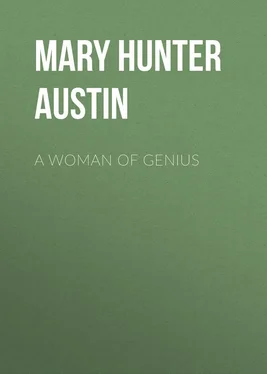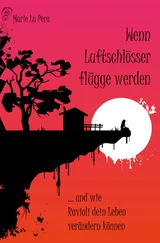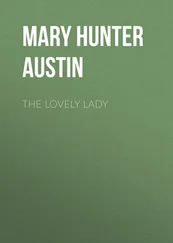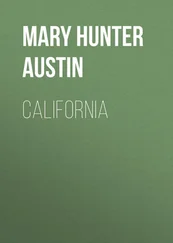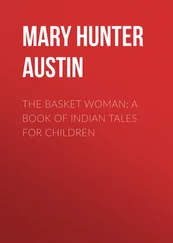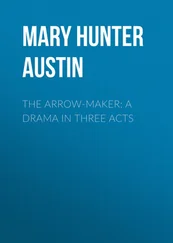Mary Austin - A Woman of Genius
Здесь есть возможность читать онлайн «Mary Austin - A Woman of Genius» — ознакомительный отрывок электронной книги совершенно бесплатно, а после прочтения отрывка купить полную версию. В некоторых случаях можно слушать аудио, скачать через торрент в формате fb2 и присутствует краткое содержание. Жанр: foreign_antique, foreign_prose, на английском языке. Описание произведения, (предисловие) а так же отзывы посетителей доступны на портале библиотеки ЛибКат.
- Название:A Woman of Genius
- Автор:
- Жанр:
- Год:неизвестен
- ISBN:нет данных
- Рейтинг книги:4 / 5. Голосов: 1
-
Избранное:Добавить в избранное
- Отзывы:
-
Ваша оценка:
- 80
- 1
- 2
- 3
- 4
- 5
A Woman of Genius: краткое содержание, описание и аннотация
Предлагаем к чтению аннотацию, описание, краткое содержание или предисловие (зависит от того, что написал сам автор книги «A Woman of Genius»). Если вы не нашли необходимую информацию о книге — напишите в комментариях, мы постараемся отыскать её.
A Woman of Genius — читать онлайн ознакомительный отрывок
Ниже представлен текст книги, разбитый по страницам. Система сохранения места последней прочитанной страницы, позволяет с удобством читать онлайн бесплатно книгу «A Woman of Genius», без необходимости каждый раз заново искать на чём Вы остановились. Поставьте закладку, и сможете в любой момент перейти на страницу, на которой закончили чтение.
Интервал:
Закладка:
CHAPTER III
But I began to tell you how Ellen McGee and I invented Snockerty and arrived at our first contact with organized society, at least Forrie and Effie and I did, for it led to our being interdicted the society of the McGee children for so long that we forgot to inquire what inconvenience, if any, they suffered on account of it.
You will see for yourself that Ellen must have invented him – where, indeed, should a saint-abhorring, Sunday-schooled Taylorville child get the stuff for it? God we knew, and were greatly bored by His inordinate partiality for the Jews as against all ancient peoples, and by the inquisitorial eye and ear forever at the keyhole of our lives, as Cousin Judd never spared to remind us; and personally I was convinced of a large friendliness brooding over Hadley's pasture, to the sense of which I woke every morning afresh, was called by it, and to it; walking apart from the others, I vaguely prayed. But Snockerty was of the stripe of trolls, leprechauns, pucks, and hobgoblins.
We began, I remember, by thinking of him as resident in an old hollow apple tree, down which, if small trifles were dropped, they fell out of reach and sound. There was the inviting hole, arm high in the apple trunk, into which you popped bright pebbles, bits of glass – and I suppose He might have sprung very naturally from the need of justifying your having parted with something you valued and couldn't get back again, at the prompting of an impulse you did not understand. Very presently the practice grew into the acknowledgment of a personality amenable to our desires.
We took to dropping small belongings in the tree for an omen of the day: whether the spring was full or not, or if we should find any pawpaws in the wood, and drew the augury from anything that happened immediately afterward: say, if the wind ruffled the leaves or if a rabbit ran out of the grass.
It was Ellen who showed the most wit in interpreting the signs and afterward reconciling their inconsistencies, but it was I conceived the notion of propitiating Snockerty, who by this time had come to exercise a marked influence on all our plays, by a species of dramatic entertainment made up of scraps of school exercises, Sunday hymns, recitations, and particularly of improvisations in which Ellen and I vied. There were times when, even in the midst of these ritualistic observances, we would go off at a tangent of normal play, quite oblivious of Snockerty; other times we were so worked upon by our own performance as to make sacrifices of really valuable possessions and variously to afflict ourselves.
It was I, I remember, who scared one of the little Allinghams almost into fits by my rendering in the name of Snockerty of an anathema which I had picked up somewhere, but it was Ellen who contrived to extend His influence over the whole of our territory by finding in every decaying stump and hollow trunk, a means of communication, and deriving therefrom authority for any wild prank that happened to come into her head. It is curious that in all the escapades which were imposed on us in the name of our deity, for which we were duly punished, not one word of the real cause of our outbreaks ever leaked through to our parents. It was the only thing, I believe, the little Allinghams never told their mother, not even when the second youngest in a perfect frenzy of propitiation, made a sacrifice of a handful of his careful curls which I personally hacked off for him with Forester's pocket knife. He lied like a little gentleman and said he had cut them off himself because he was tired of looking like a girl baby.
I think it must have been about the end of Snockerty's second summer that Ellen's wild humour got us all into serious trouble which resulted in my first real contact with authority.
Along the west side of Hadley's pasture, between it and the county road, lay the tilled fields of the Ross property, corn and pumpkins and turnips, against which a solemn trespass board advised us. It was that board, no doubt, which led to our always referring to the owner of it as old man Ross, for except as he was a tall, stooping, white-bearded, childless man, I do not know how he had deserved our disrespect. I have suspected since that the trespass sign did not originate wholly in the alleged cantankerousness of farmer Ross, and that the McGees knew more of the taste of his young turnips and roasting ears than they admitted at the time when Snockerty announced to Ellen through the hollow of a dark, gnarly oak at the foot of Hadley's hill, that he would be acceptably served by a feast of green corn and turnips out of Ross's field. This was the first time the idea of such a depredation had occurred to us, I believe, for we were really good children in the main, but I do not think we had any notion of disobeying. Personally I rather delighted in the idea of being compelled to desperate enterprises. I recall the wild freebooting dash, the scramble over the fence, the rustle of the corn full of delicious intimations of ambush and surprise, the real fear of coming suddenly on old man Ross among the rows, where I suspect we did a great deal of damage in the search for ears suitable to roast, and the derisive epithets which we did not spare to fling over our shoulders as we escaped into the brush with our booty. There was a perfect little carnival of wickedness in the safe hollow where we stripped the ears for roasting – fires too were forbidden us – where we dared old man Ross to come on, gave dramatic rehearsals of what we should do to him in that event, and revelled in forbidden manners and interdicted words. I remember the delightful shock of hearing Alfred Allingham declare that he meant to get his belly full of green corn anyway, for belly was a word that no well brought up Taylorville child was expected to use on any occasion; and finally how we all took hands in a wild dance around the fire and over it, crying,
"Snockerty, Snockerty, Snockerty!"
in a sort of savage singsong.
Following on the heels of that, a sort of film came over the performance, an intimation of our disgust in each other at the connivance of wrongdoing. I remember, as we came up through the orchard rather late, this feeling grew upon us: the sense of taint, of cheapness, which swelled into a most abominable conviction of guilt as we discovered old man Ross on the front porch talking to our father. And then with what a heaviness of raw turnips and culpability we huddled in about our mother, going with brisk movements to and fro getting supper, and how she cuffed us out of her way, not knowing in the least what old man Ross had come about. Finally the overwhelming consciousness of publicity swooped down upon us at my father's coming in through the door, very white and angry, wanting to know if this were true that he had heard – and it was the utmost limit of opprobriousness that our father should get to know of our misdeeds at all. Times before, when we downrightly transgressed by eating wild crabs, or taking off our stockings to wade in the brook too early in the season, we bore our mother's strictures according to our several dispositions. Forester, I remember, was troubled with sensibility and used fairly to give us over to wrath by the advertisement of guilty behaviour. He had a vocation for confession, wept copiously under whippings which did him a world of good, and went about for days with a chastened manner which irritated me excessively. I believe now that he was quite sincere in it, but there was a feeling among the rest of us that he carried the admission of culpability too far. Myself, since I never entered on disobedience without having settled with myself that the fun of it would be worth the pains, scorned repentance, and endured correction with a philosophy which got me the reputation of being a hardened and froward child. That we did not, on this basis, get into more serious scrapes was due to Effie, who could never bear any sort of unpleasantness. Parents, if you crossed them, had a way of making things so very unpleasant.
Читать дальшеИнтервал:
Закладка:
Похожие книги на «A Woman of Genius»
Представляем Вашему вниманию похожие книги на «A Woman of Genius» списком для выбора. Мы отобрали схожую по названию и смыслу литературу в надежде предоставить читателям больше вариантов отыскать новые, интересные, ещё непрочитанные произведения.
Обсуждение, отзывы о книге «A Woman of Genius» и просто собственные мнения читателей. Оставьте ваши комментарии, напишите, что Вы думаете о произведении, его смысле или главных героях. Укажите что конкретно понравилось, а что нет, и почему Вы так считаете.
